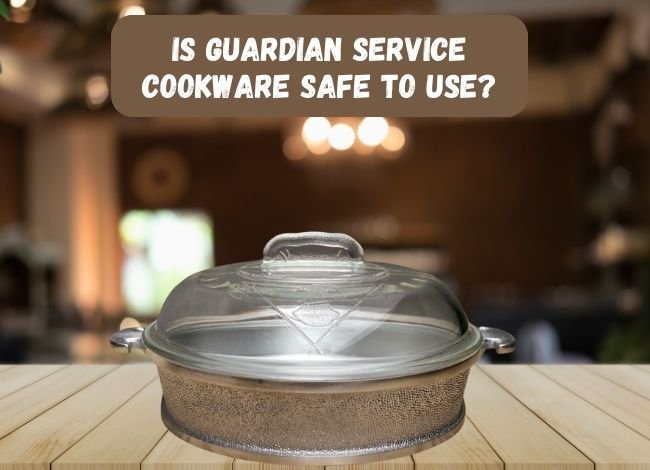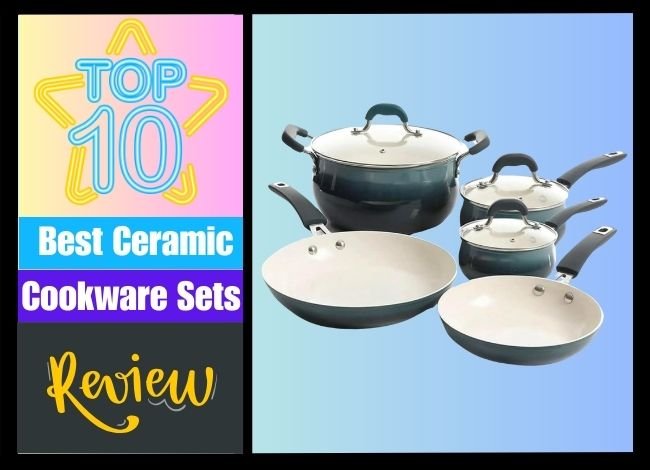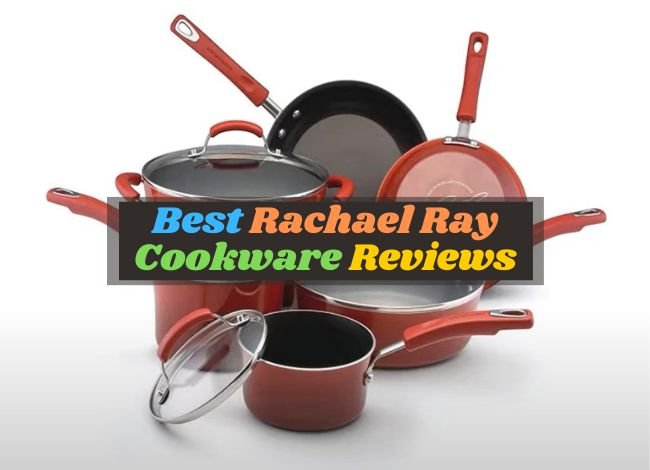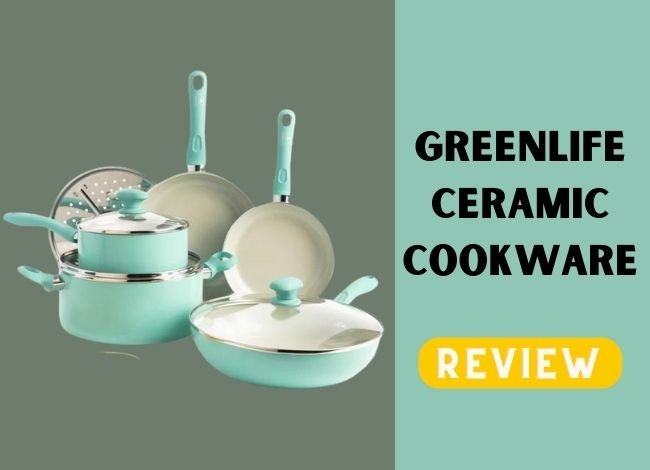Guardian Service cookware, a name reminiscent of an era gone by, was renowned for its distinct triangular and other uniquely shaped aluminum pots and pans that graced the kitchens of countless households primarily in the mid-20th century. Crafted from heavy gauge aluminum, these pieces were promoted as durable and long-lasting, able to retain and distribute heat effectively. But as with many vintage items, questions arise over their safety for modern use, especially in light of current knowledge about cookware materials.
Similar Article: Is T Fal Ceramic Cookware Safe?
Historical Context
Before delving into the safety concerns, it’s essential to understand the historical context of Guardian Service cookware. When it was first introduced, aluminum cookware was touted as the future due to its lightweight and efficient heat-conducting properties. The cookware was thick, durable, and resistant to warping, making it an ideal choice for many households. Its aesthetic appeal, combined with functionality, made it popular in its heyday.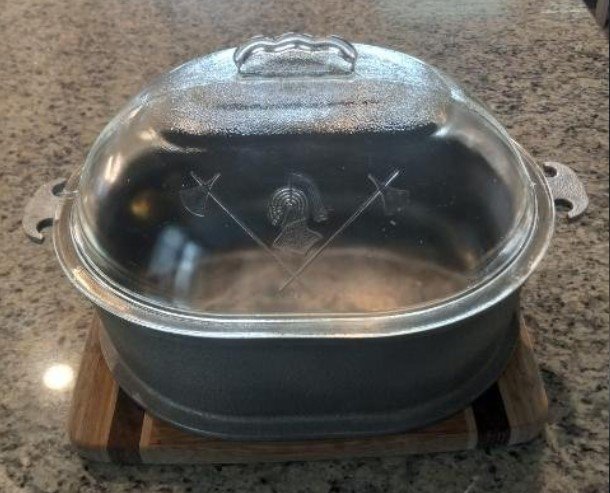
Safety Concerns
Fast forward to the 21st century, and the use of aluminum in cookware has raised certain health concerns:
- Aluminum Leaching: Studies have shown that aluminum can leach into food, especially when cooking acidic foods like tomatoes. Consumed in large amounts, aluminum has potential links to neurological disorders like Alzheimer’s disease. However, it’s important to note that the majority of aluminum intake comes from other sources like processed foods and antacids rather than cookware. Although Guardian Service cookware’s heavy-duty construction might reduce the amount of leaching compared to thinner pots, the risk still exists.
- Surface Wear and Tear: Vintage cookware, including Guardian Service pieces, may have degraded surfaces due to decades of use. Pots and pans might have scratches or worn-out spots, which could increase aluminum leaching.
- Nonstick Coatings: While Guardian Service cookware is primarily aluminum, some pieces might have nonstick coatings. Older nonstick technologies contained chemicals like PFOA, now linked to various health concerns. Though most vintage aluminum cookware doesn’t have this coating, if they do, one should be wary.
- Reactivity with Foods: Aluminum can react with certain foods, leading not just to potential health concerns but also altering the taste and color of dishes. Acidic or alkaline foods can corrode aluminum surfaces, releasing the metal into the food.
Benefits of Guardian Service Cookware
Despite these concerns, many enthusiasts and collectors swear by their Guardian Service cookware. Some of the benefits include:
- Durability: These pieces were built to last. With proper care, they can be functional even after decades of use.
- Heat Conduction: Aluminum, as a material, is an excellent heat conductor, ensuring even cooking.
- Nostalgia: For many, using Guardian Service cookware is a trip down memory lane, recalling memories of family gatherings and delicious meals.
Precautions for Use
If you’re considering using Guardian Service cookware or any vintage aluminum pots and pans, here are some precautions: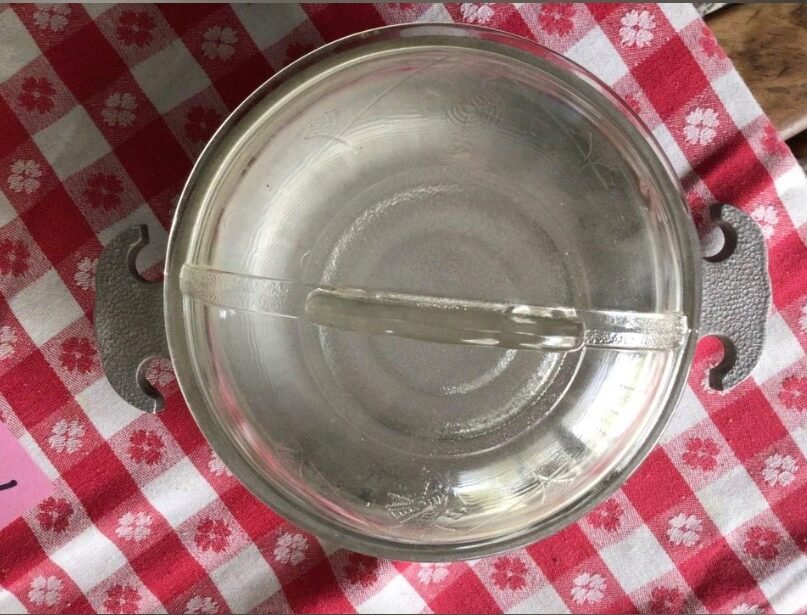
- Avoid Cooking Acidic or Alkaline Foods: Stick to neutral dishes to reduce the chance of aluminum reactivity.
- Check the Condition: Ensure the surface is smooth and without deep scratches or worn-out spots.
- Limit Frequency: Use your vintage pieces occasionally rather than daily.
- Clean with Care: Avoid abrasive scrubbers. Instead, opt for soft cloths or sponges to preserve the cookware’s surface.
Conclusion
Guardian Service cookware, with its rich history, remains a beloved relic from the past for many. While the aesthetics and nostalgia associated with these pieces are undeniable, it’s essential to approach their use with an understanding of modern health concerns related to aluminum.
The consensus among health and culinary experts is that while occasional use might be okay, especially with proper precautions, it’s wise to rely on more contemporary cookware for everyday needs. As with many vintage items, sometimes the joy lies more in the appreciation of their beauty and history than in their functionality in the modern age.
Frequently Asked Questions
Question: What is Guardian Service Cookware made of?
Answer: Explains the materials used in manufacturing Guardian Service Cookware.
Question: Is Guardian Service Cookware non-stick and does it contain PFOA or other harmful chemicals?
Answer: Addresses concerns regarding non-stick coatings and chemical contents.
Question: Can Guardian Service Cookware be used on high heat?
Answer: Provides information on the maximum safe temperatures for using this cookware.
Question: Is Guardian Service Cookware dishwasher safe?
Answer: Clarifies whether the cookware can be safely washed in a dishwasher.
Question: How does the age of Guardian Service Cookware affect its safety?
Answer: Discusses how wear and tear over time might impact the safety of using the cookware.
Question: Are there any special cleaning instructions to maintain the safety of Guardian Service Cookware? Answer: Outlines recommended cleaning practices to preserve the cookware’s safety.
Question: Can Guardian Service Cookware be used on all types of stovetops, including induction?
Answer: Details compatibility with different stovetop types.
Question: Are there any specific foods or cooking methods that should be avoided with Guardian Service Cookware?
Answer: Advises on any limitations in cooking methods or ingredients.
Question: What should I do if the Guardian Service Cookware coating starts to peel or chip?
Answer: Provides guidance on how to deal with wear and damage to the cookware.
Question: How can I verify if my Guardian Service Cookware is an original and safe product?
Answer: Offers tips on ensuring the authenticity and safety of the cookware.

